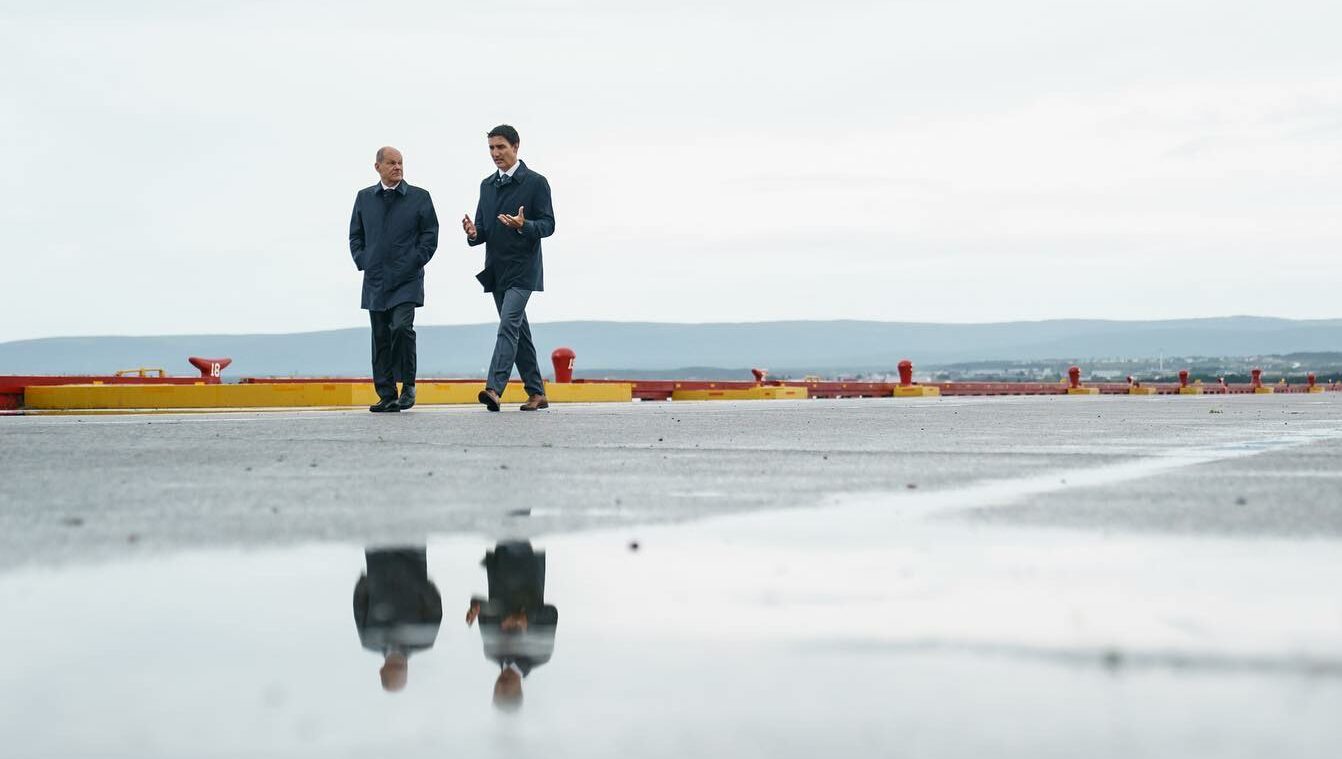Germany’s fears and disappointments about energy

Canada disappoints Scholz, who hoped to make him a preferred supplier of LNG to Germany. The country has a "very critical" winter ahead of it, says the economy minister, and is reactivating coal-fired power plants. All the details
On Tuesday, Canada and Germany announced a "hydrogen alliance" for the creation of a transatlantic supply chain and for the coordination of their respective investment attraction policies.
But Chancellor Olaf Scholz, who arrived in the country three days earlier, expected something different: that Canada would enthusiastically decide to take on the role of "reference partner" of a Germany that urgently needs gas because it can no longer rely on Russia. Ottawa not only possesses the energy material Berlin is looking for, but also offers – unlike Moscow – the guarantees of reliability of an allied and democratic country.
CANADA'S SKEPTICISM ON LNG TO EUROPE
Scholz's trip, accompanied by a delegation of German industrialists, was therefore supposed to be used to make agreements for the export of Canadian liquefied natural gas (LNG) to Germany. Prime Minister Justin Trudeau hasn't ruled out the possibility entirely, but he's been skeptical.
Canada is the fifth largest gas producer in the world, it does not have terminals for the export of LNG but has planned two for the west coast, the one overlooking the Pacific Ocean. For the fuel to reach Europe, however, it would have to build plants on the Atlantic coast and connect them to the production sites – they are in the west, in Alberta – through a new pipeline.
Trudeau underlined the economic difficulties of such a project, which could prove inconvenient because it would only satisfy a medium-term need. Indeed, if Germany and the European Union say they want to break away from fossil fuels quickly, the Canadian government and companies may not be able to repay the investments made to build LNG infrastructure. And they will have to convert them after only a handful of years, spending more money, otherwise they would turn into stranded assets .
Trudeau said Canadian companies are considering "whether it makes sense to export LNG and if there is a business case to export LNG directly to Europe". However, he assured that Canada will do its part to increase the supply of natural gas on the market: by the end of the year it should increase its export capacity by 100,000 barrels of oil equivalent.
THE AGREEMENTS ON HYDROGEN
There is a Repsol plant in the province of New Brunswick that could become a LNG terminal on the Atlantic. But for eastern Canada it is cheaper – says the government – to focus directly on hydrogen, a fuel more consistent with the energy transition process.
The German electricity companies Uniper and E.ON have signed memoranda for the purchase of 1 million tons per year of green ammonia (i.e. produced from renewable sources) from Canadian EverWind. The supplies will start in 2025. Ammonia is composed of nitrogen and hydrogen and acts as a vector for the transport of hydrogen: it is easier to load on ships because it requires lower temperatures to be liquefied (-33.1 ° C against -253 ° C).
“A VERY CRITICAL WINTER” FOR GERMANY
German Economy Minister Robert Habeck said in recent days that Germany has a good chance of surviving the winter – the most energy-critical season due to the demand for heating – without having to resort to critical measures. Nonetheless, he added, “we still have a very critical winter ahead of us. We must expect Putin to further reduce the gas ”.
Recently Gazprom, the gas company controlled by the Russian government, announced a new suspension of flows through Nord Stream 1, between the end of August and the beginning of September, talking about (new) maintenance works. According to analysts, however, there is the possibility that Moscow wants to obstruct the European plans to refill gas stocks in view of the winter, with the aim of increasing political pressure on the Union and obtaining the removal or relaxation of sanctions.
THE ENERGY SITUATION IN GERMANY
In the event that Russia were to eliminate gas supplies to Europe, explains the ISPI, "the reserves available to Germany would be enough for less than three months".
To protect electricity companies from rising prices and ensure the stability of the national gas market, Berlin had to establish a gas tax for consumers and businesses of 2,419 euro cents per kilowatt hour.
Uniper announced that, to ensure the satisfaction of energy demand in the light of the decline in Russian flows, from 29 August to 30 April 2023 it will produce electricity from the Heyden 4 coal plant. In December 2020, Uniper announced the end of the commercial activities of the plant.
This is a machine translation from Italian language of a post published on Start Magazine at the URL https://www.startmag.it/energia/germania-canada-gas-liquefatto/ on Wed, 24 Aug 2022 11:16:09 +0000.
